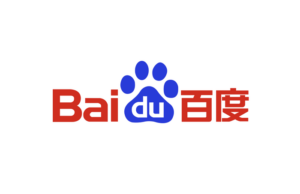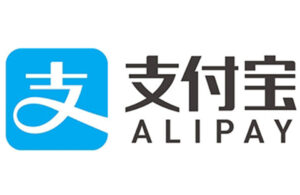WeChat may have pioneered them, but today several other apps have stepped up to do battle for the title of Mini-Program king. Bytedance (parent to video app sensation TikTok/Douyin), Alipay, Tencent QQ, and Baidu are among the major players that have rushed to launch their own Mini-Programs and incorporate them into the core of their future strategies.
While these 'applets' are often merely thought of as fun time-wasters, they can actually act as 'traffic moats' for the larger app - keeping users within the app rather than losing them to other apps performing other functions. By providing Mini-Programs that perform these other functions from within the same app, users remain engaged to that app the entire time, which also appears to be a convenience to the user who no longer has to juggle multiple apps.
Since the launch of WeChat Mini-Programs in January 2017, they have gone through numerous iterations and have been relentlessly innovating. This isn't just down to WeChat's own drive and ambition, but also pressure to keep ahead of looming rivals looking to take what has worked for WeChat and make it work for them too.
So what does such intense interest from the industry's major players mean for eCommerce in China? This article runs through each Mini-Program, starting from the first and still most successful, WeChat.
Brand eCommerce Mini-Programs: Which One is Worth Your While?
WeChat Mini-Programs
Rating: 5 Stars
As of 2019, WeChat Mini-Programs see 280 million daily users. This impressive figure is made possible by WeChat's huge user-base and absolute dominance in terms of internet traffic in China. KOLs and content producers have been quick to jump aboard the WeChat Mini-Program trend, and have helped the platform further solidify its strong early lead.
WeChat's parent company Tencent also quietly rolled out Mini-Program functionality for its other chat app QQ, but for now is focusing mostly on small games for younger users, and so isn't looking to seriously compete in the eCommerce sphere - at least, for now.
Bytedance Mini-Programs
Rating: 4 Stars
TikTok/Douyin parent Bytedance entered the Mini-Program arena in November last year. An important new prong of the company's strategy, the project is reportedly being closely watched by CEO Zhang Yiming.
Bytedance designed its Mini-Programs with eCommerce in mind. Traffic is a priority, and explosive, instant, and easy sales are goals. As with WeChat, there exists a mutually beneficial relationship between the Mini-Programs and the popular app they're incorporated into. The popularity of the app means a large audience for the applets from launch. Meanwhile, the Mini-Programs of course aim to help keep users engaged with the app. Users no longer need to move to another in order to play games, shop, etc.
Bytedance seems to have met its goal of an explosive launch - in less than a year it has amassed 250 million daily users despite the app itself having only a fraction of the total user-base of WeChat. It has done this through near-seamless integration with some of the most popular eCommerce platforms (including marketplace JingDong, electronics giant Xiaomi, and movie box office service Maoyan (Cat's Eyes) as well as a steady stream of high quality content and appealing Mini-Programs of many varieties.
One particularly successful demonstration of such integration was Xiaomi inserting its eCommerce Mini-Program into short TikTok/Douyin videos as part of a wider social media campaign, which broke 5 billion views in under a week.
Due to this break-out success and clearly proven strengths, TMO believes that it is newcomer Bytedance's Mini-Programs that are the hottest in the industry after still-reigning champion WeChat.
Baidu Mini-Program
Rating: 3.5 Stars
Launched in July 2018, Baidu's Mini-Program boasted of the 1 billion yuan available in its science and technology fund. This fund was available to developers working on its platform. At present, Baidu Mini-Program has some 200 million daily users across more than a hundred different Mini-Programs.
Baidu integrate its applets throughout its family of apps to ensure broad reach and a multi-pronged approach. These apps include the popular Baidu Maps, as well as Baidu-invested video platforms iQiyi and Bililbili.
Baidu of course leverages its powerful "AI+ Search" functionality to enhance its applets and increase user conversion. Travel site Ctrip's Mini-Program has even seen an increase in the time people spend on the applet by 150%. This is due in no small part to Baidu's enhanced search algorithm.
Alipay Mini-Program
Rating: 3 Stars
Baidu was not alone in offering a 1 billion yuan in science and technology funding. Alipay matched this offer to the dollar with its own funding package. Launched in September 2018, Alipay Mini-Programs have successfully snatched a daily user-ship of 230 million. These applets interconnect with a rival map app to Baidu's, Gaode, as well as popular food ordering app Eleme.
As the country's second most popular eWallet, Alipay is able to leverage its close links to small businesses and public & financial services to integrate Mini-Programs in these market sectors to great effect. It is no surprise then that it specializes in life and business services as well as small-scale transactions. Nor that it falls short somewhat in the social sector. Despite its close links to T-Mall and other major eCommerce platforms, Alipay actually struggles to match WeChat's eCommerce performance. This is due in part to brand stores like Xiaomi not choosing to support it.













